|
Geant4
10.03.p03
|
|
Geant4
10.03.p03
|
#include <G4VCrossSectionHandler.hh>
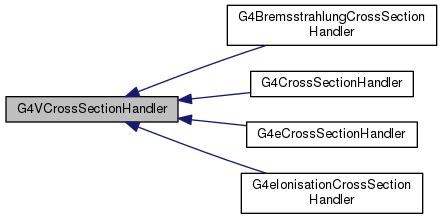
Protected Member Functions | |
| G4int | NumberOfComponents (G4int Z) const |
| void | ActiveElements () |
| virtual std::vector < G4VEMDataSet * > * | BuildCrossSectionsForMaterials (const G4DataVector &energyVector, const G4DataVector *energyCuts=0)=0 |
| virtual G4VDataSetAlgorithm * | CreateInterpolation () |
| const G4VDataSetAlgorithm * | GetInterpolation () const |
Definition at line 64 of file G4VCrossSectionHandler.hh.
| G4VCrossSectionHandler::G4VCrossSectionHandler | ( | ) |
Definition at line 88 of file G4VCrossSectionHandler.cc.
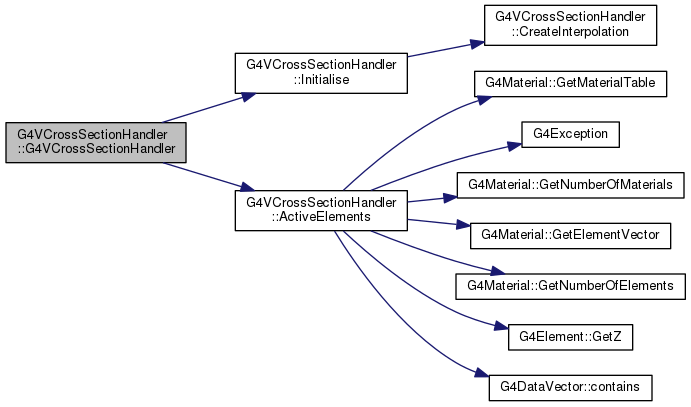
| G4VCrossSectionHandler::G4VCrossSectionHandler | ( | G4VDataSetAlgorithm * | interpolation, |
| G4double | minE = 250*CLHEP::eV, |
||
| G4double | maxE = 100*CLHEP::GeV, |
||
| G4int | nBins = 200, |
||
| G4double | unitE = CLHEP::MeV, |
||
| G4double | unitData = CLHEP::barn, |
||
| G4int | minZ = 1, |
||
| G4int | maxZ = 99 |
||
| ) |
Definition at line 97 of file G4VCrossSectionHandler.cc.
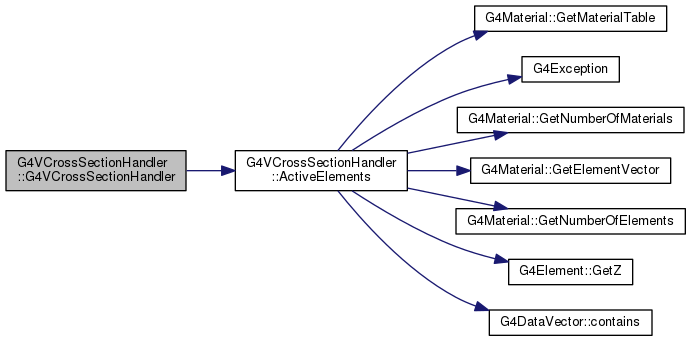
|
virtual |
Definition at line 112 of file G4VCrossSectionHandler.cc.
|
protected |
Definition at line 695 of file G4VCrossSectionHandler.cc.
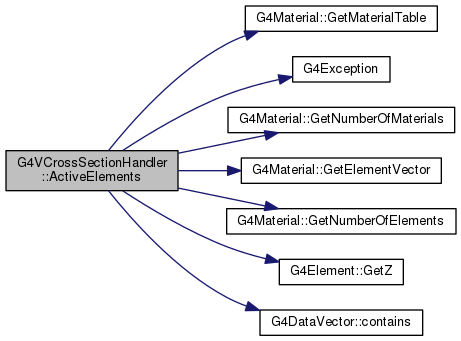

|
protectedpure virtual |
Implemented in G4eIonisationCrossSectionHandler, G4BremsstrahlungCrossSectionHandler, G4CrossSectionHandler, and G4eCrossSectionHandler.

| G4VEMDataSet * G4VCrossSectionHandler::BuildMeanFreePathForMaterials | ( | const G4DataVector * | energyCuts = 0 | ) |
Definition at line 463 of file G4VCrossSectionHandler.cc.


| void G4VCrossSectionHandler::Clear | ( | ) |
Definition at line 353 of file G4VCrossSectionHandler.cc.


|
protectedvirtual |
Definition at line 722 of file G4VCrossSectionHandler.cc.

Definition at line 379 of file G4VCrossSectionHandler.cc.

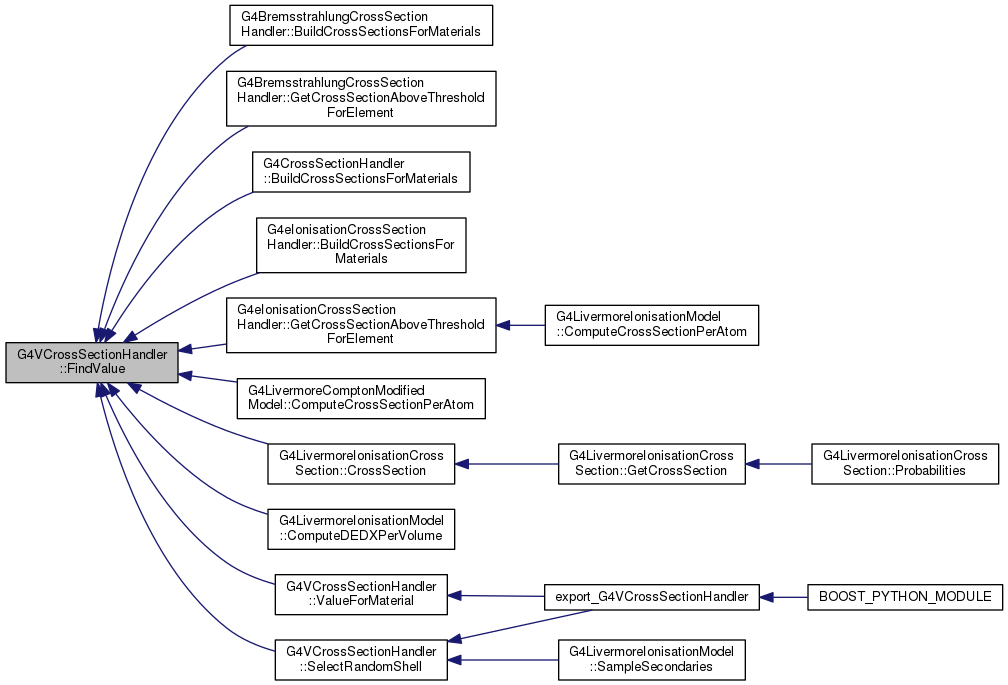
Definition at line 402 of file G4VCrossSectionHandler.cc.

|
inlineprotected |
Definition at line 126 of file G4VCrossSectionHandler.hh.
| void G4VCrossSectionHandler::Initialise | ( | G4VDataSetAlgorithm * | interpolation = 0, |
| G4double | minE = 250*CLHEP::eV, |
||
| G4double | maxE = 100*CLHEP::GeV, |
||
| G4int | numberOfBins = 200, |
||
| G4double | unitE = CLHEP::MeV, |
||
| G4double | unitData = CLHEP::barn, |
||
| G4int | minZ = 1, |
||
| G4int | maxZ = 99 |
||
| ) |
Definition at line 140 of file G4VCrossSectionHandler.cc.

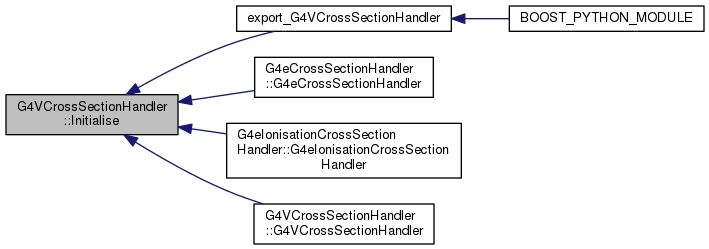
Definition at line 187 of file G4VCrossSectionHandler.cc.


Definition at line 264 of file G4VCrossSectionHandler.cc.

Definition at line 334 of file G4VCrossSectionHandler.cc.


Definition at line 728 of file G4VCrossSectionHandler.cc.


Definition at line 166 of file G4VCrossSectionHandler.cc.


| G4int G4VCrossSectionHandler::SelectRandomAtom | ( | const G4MaterialCutsCouple * | couple, |
| G4double | e | ||
| ) | const |
Definition at line 562 of file G4VCrossSectionHandler.cc.


| const G4Element * G4VCrossSectionHandler::SelectRandomElement | ( | const G4MaterialCutsCouple * | material, |
| G4double | e | ||
| ) | const |
Definition at line 604 of file G4VCrossSectionHandler.cc.
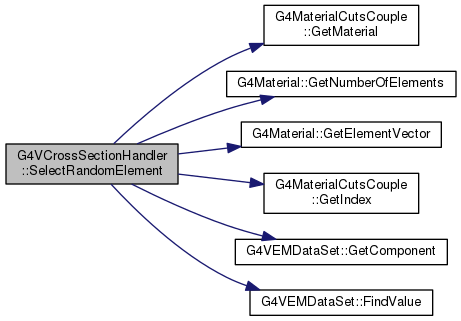

Definition at line 650 of file G4VCrossSectionHandler.cc.


| G4double G4VCrossSectionHandler::ValueForMaterial | ( | const G4Material * | material, |
| G4double | e | ||
| ) | const |
Definition at line 442 of file G4VCrossSectionHandler.cc.

